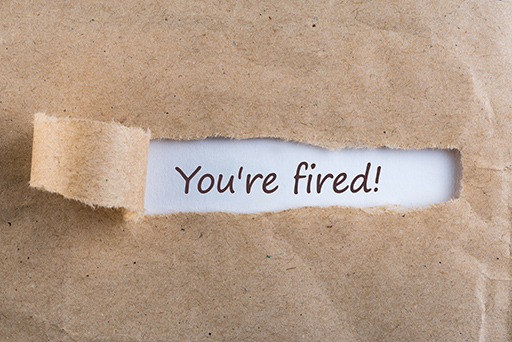5 What will employers do if my personal brand goes wrong?
They won’t always fire you, but you can get into a lot of trouble for communicating the wrong messages as part of your personal brand.
Activity 5 What did Sally do wrong?
Sally recently used Twitter to share this short message:
‘Hooray! I’ve been offered a job at Bob’s Diner. Now to decide if the money is worth smelling of stale chip fat every day…’
In the box below, explain why you think this message was a bad idea.
Discussion
Sally has just shared a negative view about her new employer. This could be bad for Bob’s business and indicates a lack of commitment on her part. If future employers saw this when checking her social media, they would wonder if she might say negative things about them too, and this could reduce her chances of getting an interview.
You might think this is too obvious as an example, but it is based on a real-life situation. That tweet was seen by another employee of the company and he shared it with his boss, who immediately retracted the job offer.
The internet is full of examples of people who used Twitter or Facebook in the wrong way and suffered the consequences.
- Kevin’s complaints. Kevin was an intern who was sick of doing all the menial jobs in the printing company he was working at. He tweeted that his job was ‘boring’ and was fired the next day.
- Susie’s Instagram habit. Susie loved Instagram. She would share photos of anything and everything! One day she shared an Instagram picture of her desk to show everyone how messy it was. Unfortunately, there was an open document on her desk that contained confidential company information. Her disciplinary hearing took place the following month.
- Jennifer’s drinking. Jennifer was a teacher in a strongly religious state in the US. She attended a family barbeque one weekend and posted a picture on Facebook of herself appearing to drink directly from a bottle of wine. The headteacher asked her to resign.
- Martin’s misdemeanour. Martin phoned in sick one morning. Later that day, he posted a picture on Facebook, of himself partying by a swimming pool. He tagged a friend who was at work. Unknown to him, that friend was Facebook friends with his boss. He lost a day’s pay and his boss was less sympathetic about future illnesses.
Some of these examples may seem a little extreme, but they illustrate the point that our personal brand isn’t just a tool to get us a job that we love, it is something we need to maintain and be aware of all the time. Remember the importance of consistent messages? Don’t be tempted to deviate from those if there’s a chance your employer might see them.
In Week 6, you’ll find out more about how to promote your personal brand online and how to clean up your online profile if you need to.

